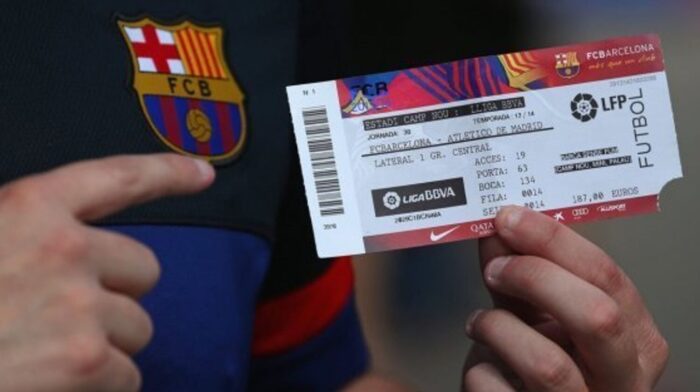Clio Barnard’s first feature-length documentary movie, “The Arbor,” acquired The Douglas Hickox Award on the BIFAs, Greatest British Newcomer and the Sutherland Award on the BFI London Movie Competition, Greatest New Documentary Filmmaker at Tribeca, and a BAFTA nomination for Excellent Debut. Her second characteristic, “The Egocentric Big,” premiered as a part of Cannes Director’s Fortnight 2013, the place it received the Europa Cinema Label Award for Greatest European Movie. It was nominated for a BAFTA for Excellent British Movie. A BFI Screenwriting Fellowship recipient, Barnard can also be the director of “Darkish River,” starring Ruth Wilson, which premiered at TIFF 2017, and the TV adaptation of “The Essex Serpent,” starring Claire Danes.
“Ali & Ava” opened in NYC July 29 and is rolling out to extra cities right now, August 5.
W&H: Describe the movie for us in your individual phrases.
CB: “Ali & Ava” is a love story about two people who find themselves each lonely regardless of being surrounded by folks they love. Set over a lunar month, Ali and Ava are a catalyst for change in one another’s lives.
W&H: What drew you to this story?
CB: I met two individuals who impressed me — Rio, who the character of Ava is impressed by, and Moey Hassan, who the character of Ali relies on — whereas making my earlier movies “The Egocentric Big” and “The Arbor.” The movie can also be a love tune to town of Bradford — I wished to make a movie that celebrates town.
W&H: What would you like folks to consider after they watch the movie?
CB: I would like folks to come back out of the cinema wanting to bounce on high of a automobile! I would like folks to depart the cinema with a powerful sense of risk and a sense of pleasure. Adeel [Akhtar, who plays Ali] and I talked about pleasure as an act of resistance.
W&H: What was the largest problem in making the movie?
CB: The movie touches on some tough material however I didn’t need it to be heavy-handed, so discovering that steadiness was a giant problem.
W&H: How did you get your movie funded? Share some insights into how you bought the movie made.
CB: The movie was funded by BBC Movies, the British Movie Institute, and Display screen Yorkshire.
W&H: What impressed you to turn out to be a filmmaker?
CB: I’m from a visible arts background and began utilizing a 16mm hand-wound Bolex to make data of charcoal drawings as they modified, and fell in love with celluloid. I beloved watching movie after I was rising up — “Efficiency” by Nicolas Roeg and “Rashomon” by Akira Kurowsawa made a giant impression after I was a teen.
W&H: What’s one of the best and worst recommendation you’ve acquired?
CB: The perfect recommendation was forged effectively and crew effectively.
The worst recommendation was to get a correct job — I used to be informed by an ex that it was unrealistic to assume I may make a residing making movies.
W&H: What recommendation do you’ve for different ladies administrators?
CB: Your voice is required — we wish to hear the tales you wish to inform, informed in the way in which you wish to inform them.
W&H: Title your favourite woman-directed movie and why.
CB: That is tough to reply as a result of there are such a lot of. If I’m compelled to decide on, I’d say “Vagabond” by Agnès Varda as a result of it was made within the mid ’80s, when a movie directed by a girl was a rarity, and it’s an excellent movie that mixes drama and documentary components with a fantastic central efficiency and nice construction.
W&H: What, if any, duties do you assume storytellers should confront the tumult on this planet, from the pandemic to the lack of abortion rights and systemic violence?
CB: Sure, I do assume storytellers have duties to reply to the tumult on this planet.
W&H: The movie business has an extended historical past of underrepresenting folks of colour onscreen and behind the scenes and reinforcing — and creating — adverse stereotypes. What actions do you assume must be taken to make it extra inclusive?
CB: Sure, there’s an pressing must have many extra folks of colour in all areas of the movie business. Within the U.Okay., folks of colour make up three % of the workforce within the movie business regardless of being 17 % of the inhabitants and 40 % of London’s inhabitants — the place the vast majority of the workforce relies — so there actually must be a giant push to deal with racial inequality within the movie business.
There must be constructive motion from everybody, in any respect ranges, in all organizations; these in positions of energy want to acknowledge the issue and recruit folks of colour to be the gatekeepers — commissioners and government producers — to essentially impact change in addition to addressing inequality by way of writers/administrators/producers onscreen and behind the digicam.
We will all play an element in pushing for and bringing about constructive change.




